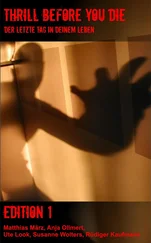“Yes.”
“Because-”
“Because I may… be… crippled. That seems reason… enough.” It was the longest response he had heard from Spencer all afternoon, and the length-as well as the wheezy rasp-caught John off guard.
“They don’t know that for sure,” he murmured, and he feared he sounded blindly-illogically-optimistic.
Spencer rolled his eyes and then grimaced. “When did you start?”
“Hunting? Last fall. I got interested in the summer, around the time we got Sara’s amnio results and we realized we were going to have a little boy. A son. I’ve known lots of people in Vermont who hunt, of course, and I guess I’d always been intrigued. And so I took a course and some lessons-”
“Not enough…”
John sighed, knowing there was nothing he could (or should) say in his defense.
“No. Apparently not. Anyway, I took lessons and I took the safety course and before I knew it, I was”-and he felt himself shrugging, as if he were commenting on a subject as innocuous as which necktie he had worn to work-“hunting.”
“You kill something?”
“No. Not yet. Never, now.”
Spencer breathed in and out through his nose. It sounded a bit like a small plastic whistle.
“When you feel a little better-and only when you feel better-let’s talk about FERAL, okay? About what they want you to do.”
“I don’t think so.”
“You don’t think so?”
“When it comes to… to that, we should talk… through lawyers.”
“God, Spencer, you know how sorry I am, don’t you? I am-”
“Go. Please.”
“You want me to leave?”
“Yes. Thank you.”
“Look: I went hunting a couple times last November. I was one guy with one gun. I’m sorry about that. But it’s not like I was electrocuting minks or sending the ham hogs up the chute at Tar Heel. I’m-”
“John: Not now… okay?”
“Okay,” he agreed, stunned, and he stood. There was so much he wanted to explain to his brother-in-law-about why he hunted, what he had once (though no longer) hoped the sport someday might give to him and to his son. He wanted to explain to Spencer what was really in store for him-and, alas, for his daughter-if he made a public circus of a lawsuit against Adirondack. It would be more than just depositions and investigations. There would be thinly veiled threats. His daughter in news stories on television, in print, on the Web. He himself defined solely in terms of his disability. The media coverage might serve FERAL’s agenda well, but it certainly wouldn’t make his family’s life any easier.
And did he want to risk seeing his wife’s brother drawn into the suit by the gun company? That, too, was a possibility, depending upon the state in which they brought the action. The legal wording was “contribution among joint tortfeasors,” but in lay terms it simply meant that the gun company might drag him into this disaster as a codefendant.
Currently the rifle was with the New Hampshire State Police. Assuming that the state’s attorney decided not to file criminal charges (and John desperately reassured himself that no New Hampshire “live free or die” prosecutor, even if he were the sort of unforgiving Draconian sociopath he’d dealt with on occasion in Vermont, would charge either him or his niece with a crime), Spencer’s lawyers would want it. And, he knew, he would give it to them before they subpoenaed it, because this was Spencer they were talking about. Then his brother-in-law’s lawyers would have the rifle examined by experts of their own in a laboratory somewhere-probably that one in Maryland-and he would know once and for all just how incompetent he was.
Or, to be precise, just how incompetent he would be made to appear to the world.
Still, it wasn’t the fact that he was about to leave without having discussed the lawsuit that most distressed John: It was that he had asked Spencer, his brother-in-law and his friend, if he had known he was sorry, and the experience had proven completely unsatisfactory. He understood now that he wanted to fall on his knees on the hospital room floor and actually beg his brother-in-law’s forgiveness. He wanted, he realized, to weep. But he wasn’t the sort of man who cried-at least in front of other people-and Spencer wasn’t the type of man who would want to see such a spectacle. Nevertheless, he desired nothing more in the world right now than the chance to go back in time to Saturday afternoon and remove his rifle from the trunk of the Volvo. He would get that bullet out of the chamber-to think he could have fired the gun into the sky all along!-and then he would bury the weapon as deep in the fields of lupine as he could. He never wanted to touch a rifle again or venture into the woods with a gun. His brief excursion into the great northern forest as a hunter was over.
Spencer, he saw, had turned his eyes toward the window and was still waiting for him to leave. And so he did. He mumbled that he’d be back in the morning, and then he left. It was only when he was in the hallway that he realized he couldn’t go home yet-he couldn’t, in fact, go home for hours-because he had to drive his sister back to Sugar Hill. He couldn’t leave until she was ready. Until she had said good-bye to Spencer for the night. And so he sat alone in one of the chairs with the carrot-colored vinyl that squeaked near the nurses’ station on Spencer’s floor and rested his head in his hands.
SARA LAID PATRICK on the towel in the grass in the shade and pulled off the zippered bodysuit he was wearing so she could change his small diaper. Once it was off-the outfit had a large patch of an ostensibly playful-looking automobile to the left side of the zipper, with wheels that resembled eyes-she contemplated her son’s tiny shoulders. As if he were a doll, she gently lifted his right arm like a lever, then spun it slowly in its socket. The baby cooed and smiled up at her. She smiled back. She didn’t want to pull Patrick’s arm over his head and replicate the movement he would make someday soon when he threw a cereal bowl onto the floor for the first time or heaved Drool Monkey from his bed, because she was afraid she might hurt him. But she saw the exact movement in her mind: She saw the shoulder moving under a shirt, the denim strap from a pair of overalls rising up off the cotton just below it. She saw those petite fingers coming forward with a whoosh.
She couldn’t imagine her brother-in-law, Spencer, not striving to be-and here was that word again, as much an adjective as a family moniker-vigorous. A part of that small but oh-so-vigorous Seton tribe. He was disabled now, that was a given, but she doubted that his physical therapists would ever understand that among the greatest handicaps confronting poor Spencer would be his inability simply to hang around with Catherine and John and, yes, Nan on their level: the level of people in perpetual motion, people who are constantly busy so they never have time to reflect on…
On anything.
At least when they were in New Hampshire.
Sometimes she wondered what demons lived with them here that drove them to the golf course and the tennis court, the bridge table and the vegetable garden. To cocktail parties at the Contour Club, to nature walks up and down Sugar Hill. Nan was a particular mystery to her. Exactly what was it that she didn’t want to think about? Nan was, apparently, somewhat better when she was home in Manhattan, but even there, Sara knew, she was always relentlessly busy-and she always had been.
Over the years John had revealed to her much of his childhood, but other than the death of his father at a relatively-though not horrifically-young age, there was little there that seemed likely to scar either him or his sister or their mother. Unlike so many other Manhattan childhoods (or marriages) of the era, there wasn’t any boozing or drugs (at least not to bacchanalian excess), there didn’t seem to be any adultery. Obviously there was no wrenching divorce. It was actually a life so full of privilege and entitlement it was uneventful.
Читать дальше











